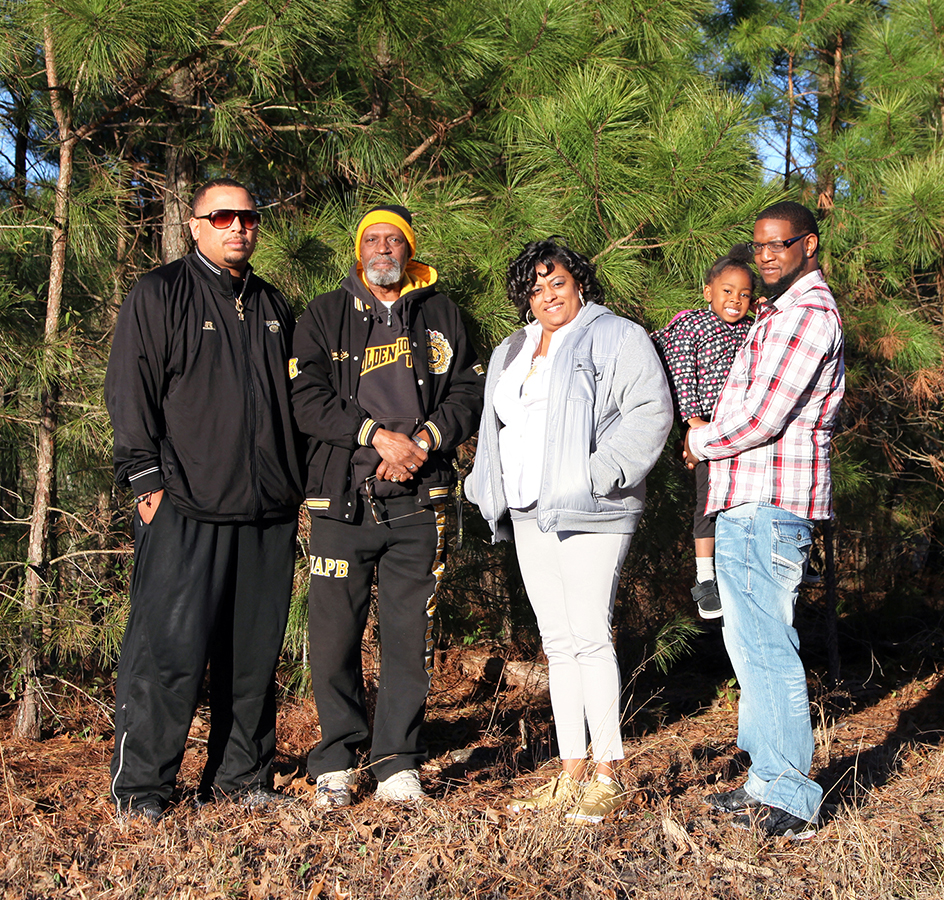By Will Heheman
Beverly Burkett, owner of F&B Associates, is using the expertise she gained during her career with the U.S. Department of Agriculture (USDA) Farm Service Agency (FSA) to help African American landowners in Arkansas keep their land for future generations. She is working with the University of Arkansas at Pine Bluff (UAPB) Small Farm Program to reverse the trend of land loss among Black farmers because of complications related to land being designated as heirs’ property.
Challenges associated with heirs’ property status are the leading cause of involuntary land loss among African American farmers, Burkett said. Heirs’ property refers to family-owned land passed down without a will and held by descendants as “tenants in common.”
“In these cases, each owner has an undivided interest in the land,” she said. “Any owner or anyone that purchases a small interest in the land can file with the court to force other owners to sell. These ‘partition sales’ often occur against the wishes of other family members. The result is often a sale that does not meet fair market value and may result in the dispossession of family members from their inherited land.”
Heirs’ property is also often the target of predatory developers, Burkett said.
“Some developers keep their eye out for property with delinquent taxes,” she said. “Once land goes delinquent, it is put up for sale by the state. Predatory developers can pay the delinquent land taxes and then purchase the land at a huge discount. If they purchase part of the land that is heirs’ property, they are able to force the partition sale of the rest of the property.”
There is good news for Arkansas landowners, Burkett said. Arkansas is one of 17 states that passed the Uniform Partition of Heirs’ Property Act (UPHPA). This law helps protect the interests and needs of vulnerable landowners.
“The law allows the owners or tenants-in common to buy out an owner who wants to sell the family land at the appraised value without having to put the entire property up for sale,” she said. “In other words, the person who wants to sell the land must offer to sell it to family members first. Most people don’t know about this law, so the UAPB Small Farm Program is trying to spread the word. This is a great step in helping African American landowners keep their land in the family.”
Solving problems related to Farm Numbers
Burkett said landowners must have an official USDA Farm Number to apply for FSA farm loans, disaster assistance and crop insurance. It is also necessary to have a farm number to be eligible for Natural Resources Conservation Service programs such as the Environmental Quality Incentive Program (EQIP).
Problems arise when farmers and ranchers have land on file in the name of a deceased relative at their local FSA office.
“People pass away every day, and the relatives of the deceased believe they have fully inherited their property,” Burkett said. “However, that is often not the case. In Arkansas, it is very common to find land that is technically in the name of a person who died 20 or 30 years ago. No one knows how to correct the ownership status of the farmland.”
To actively manage their land, family members who inherited land from a deceased relative need to go to their local FSA office and have the names updated on their Farm Number. Unfortunately, this is not as easy as it sounds – especially in the cases where people have inherited heirs’ property. In many cases the land needs to be reconstituted because part of the land has been sold or family members want their land separated.
“Reconstitution is the FSA process through which land is combined or divided,” Burkett said. “Imagine a group of siblings inherits land, and the farm number is in the name of their deceased father. Now the siblings have different ideas for the management of their individual tracts of land. This means they need to fill out the FSA’s reconstitution form to get their own farm numbers. In other cases, people may just opt for a track division, in which case the land is split into separate tracts, but the Farm Number stays the same.”
Having the right documentation
Documentation is always key in making changes to the status of one’s land in the FSA office, Burkett said.
“Whether you are updating the names on your Farm Number or reconstituting your land, it is of utmost importance to have documentation on hand that proves you are the owner of the land,” she said. “Of course, having access to the property deed is the best-case scenario. But in the event the deed is lost, there are other ways to prove ownership of land.”
According to the FSA, proof of ownership may include the following:
• A copy of the deed, if recorded.
• An unrecorded deed if the specific USDA program does not require a recorded deed.
• A land purchase contract or other similar document that affirms ownership interest.
• An FSA employee’s check of the record at the county land records office or website.
• A certification of an heir that may not be able to provide legal documentation to confirm ownership of the property. The certification will need to be accompanied by documentation such as real estate tax assessment or bill, proof of gift tax, a will or an affidavit of ownership.
For more information and resources on resolving heirs’ property issues, contact Karen Lee, UAPB Extension assistant, at [email protected] or (870) 575-7225.
The University of Arkansas at Pine Bluff offers all its Extension and Research programs and services without regard to race, color, sex, gender identity, sexual orientation, national origin, religion, age, disability, marital or veteran status, genetic information, or any other legally protected status, and is an Affirmative Action/Equal Opportunity Employer.





